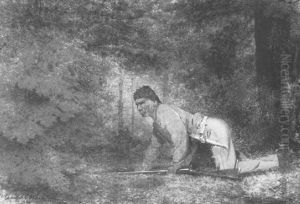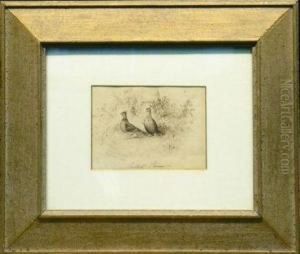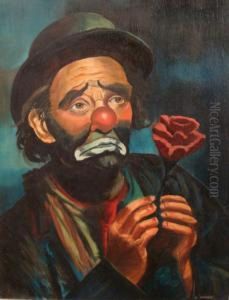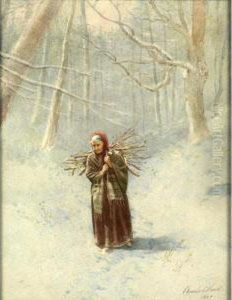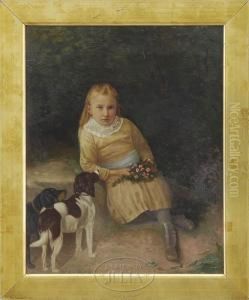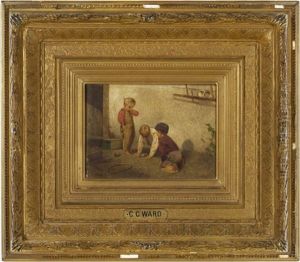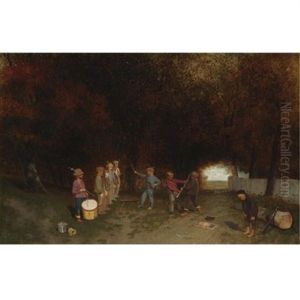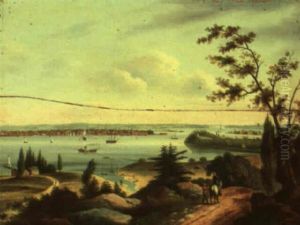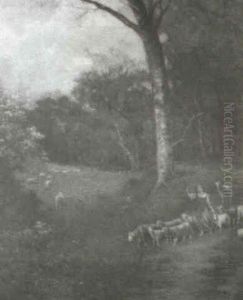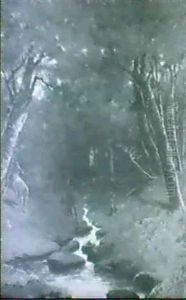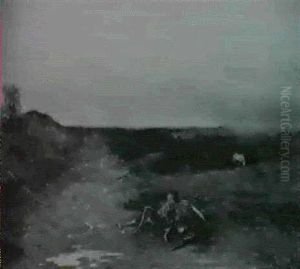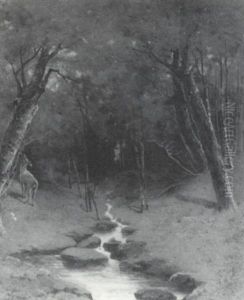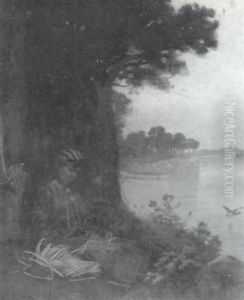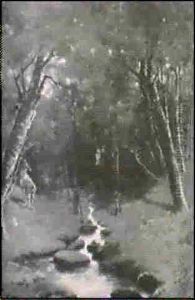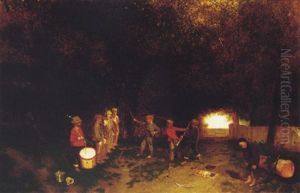Charles Caleb Ward Paintings
Charles Caleb Ward was an American painter known for his genre scenes and landscape paintings. Born on November 11, 1831, in New York City, Ward demonstrated an early talent for art which led him to pursue a career as a painter. He began his formal art education at the National Academy of Design in New York and then continued to refine his craft in Europe, which was a common practice among American artists of the time seeking to gain exposure to the classical artistic traditions and the contemporary artistic movements.
Ward's time in Europe included a stay in Paris, where he was influenced by the Barbizon School, a group of artists who focused on realistic and naturalistic landscapes and scenes of rural life. This experience had a profound impact on Ward's own style, as he started to incorporate elements of this approach into his work. Upon returning to the United States, Ward settled in New York where he became an active member of the art community.
Throughout his career, Charles Caleb Ward became known for his ability to capture the nuances of everyday life, often depicting scenes of American society and landscapes with a focus on the changing seasons and times of day. His work resonated with the American public and was well-received by critics during the latter half of the 19th century. Ward's paintings were exhibited at major art institutions such as the National Academy of Design and the Boston Art Club.
Despite the popularity he enjoyed during his lifetime, Ward's work was somewhat overshadowed by the rise of other art movements towards the end of the 19th century and subsequently has not maintained a high profile in the art historical narrative. Charles Caleb Ward passed away on June 5, 1896, leaving behind a legacy of artwork that provides a window into the American life and landscape of his time. His paintings remain in the collections of various museums and institutions, serving as a testament to his skill and dedication to capturing the spirit of the age in which he lived.
